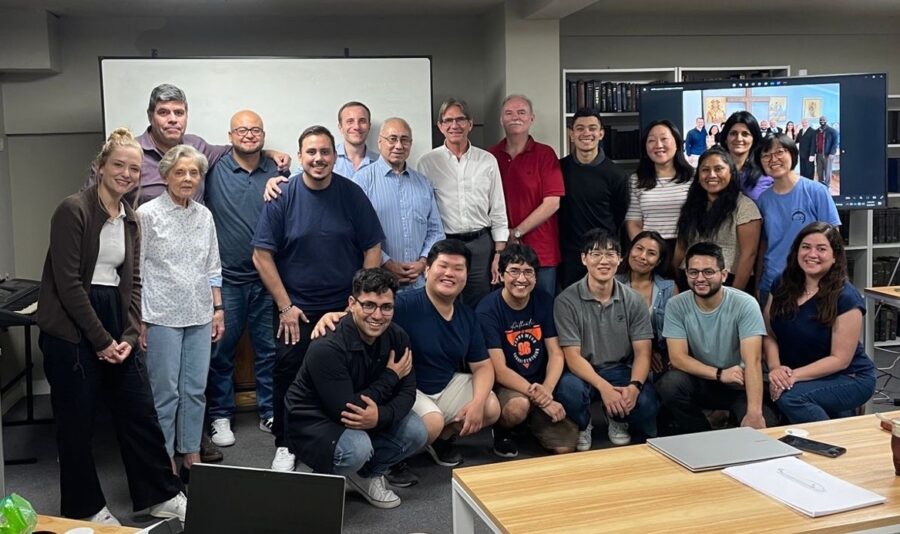Attentiveness: Revelation 7:9

“People from every tongue and tribe and people and nation, standing before the throne and before the lamb . . .” (Revelation 7:9)
This has been one of my favorite passages for the past quarter of a century. It is a vision of heaven where all the different ethnic groups or tribes or cultures are united. But they are united only because they are transfixed on the glorious presence of the One who has made their joyous unity possible.
Without the lamb they would not be together as one.
Without the lamb they would not, at the same time, retain their unique cultural and spiritual identity.
Without Jesus our unity and reconciliation are only a feigned approximation of what is real, holy, and full of love.
God loves the diversity of cultures and languages. Here is the human problem: we prefer speaking our own language and interacting with people who understand our expressions, our history, our food, and our customs. We see it all the time as people gather with their “people” in cafeterias, on college campuses, and even in churches.
And that is the rub. We like to be comfortable.
Sometimes it can seem as if churches are identified as much by individual cultures and races as by Jesus. However, I am a “both/and” kind of Christian. In Redemptive Kingdom Diversity, Jarvis Williams states, “In Christ . . . diverse ethnic communities become a new and transformed multiethnic community as they keep their natural ethnic marks of distinction that are congruent with the gospel of Jesus Christ and as they take on new marks of ethnic distinction (e.g., faith, the Spirit, obedience, suffering for Christ) that prove them as members of this new multiethnic group in Christ.”[1]
Christians must be both/and Christians in the midst of a dynamic society. They must enrich their own cultures through community contact, but they must also build bridges to other communities as a foretaste of the Kingdom through worship and witness. We need to show the world the Kingdom in our multicultural worship and multicultural service to other communities.
If we are always in our own cultural communities, we look like a reflection of our divided and segregated world.
We must be “both/and”: BOTH encourage the diversity of cultures AND bring the many “tongues, and tribes, and peoples and nations” together around the lamb for worship and witness.
Recently I was in Buenos Aires with Korean-Argentine, Venezuelan, Brazilian, Ukrainian, French, and British students. It was a reminder of the heavenly vision. While there are cultural and ethnic churches in the city of Buenos Aires, many churches bring different groups together. In addition, through the good work of pastoral associations and the new seminary, Facultad de Teología Integral, many languages and cultures are brought together.
I believe it is important to talk about this tension of cultural identity and Christian unity for the sake of the Church and the church’s witness in the midst of a divided, tense, and angry culture.
And I think we all look forward to the fulfillment of Revelation seven.
[1] Jarvis Williams, Redemptive Kingdom Diversity: A Biblical Theology for the People of God. (Grand Rapids, MI: Baker Academic), 4.
 Dr. Scott W. Sunquist, President of Gordon-Conwell Theological Seminary, is author of the “Attentiveness” blog. He welcomes comments, responses, and good ideas.
Dr. Scott W. Sunquist, President of Gordon-Conwell Theological Seminary, is author of the “Attentiveness” blog. He welcomes comments, responses, and good ideas.